These are the 4 simplest and most basic of hydroponic setups. Although easily and cheaply built, they are very efficient at growing an impressive array of fresh vegetables… or whatever other plants you might fancy.

Our Beginner’s Guide To Hydroponics is on sale for a short time. Check it out!
4 Simple Hydroponic Setups
We explain and diagram each process so you understand how it works. Then we provide free plans so you can build your own 1-6 plant setup. This will “get your feet wet” as you learn the basics of hydro.
Later, we’ll provide in-depth instructions for a bigger and better system. You can use some of the materials and equipment from your first project when you get ready to upgrade.
Now, on to the DIY plans. We suggest you explore all four of them before deciding which one would be best for your needs. Each system has its pros and cons, and what you want to grow will be a big deciding factor.
1. Ebb & Flow (Flood & Drain)
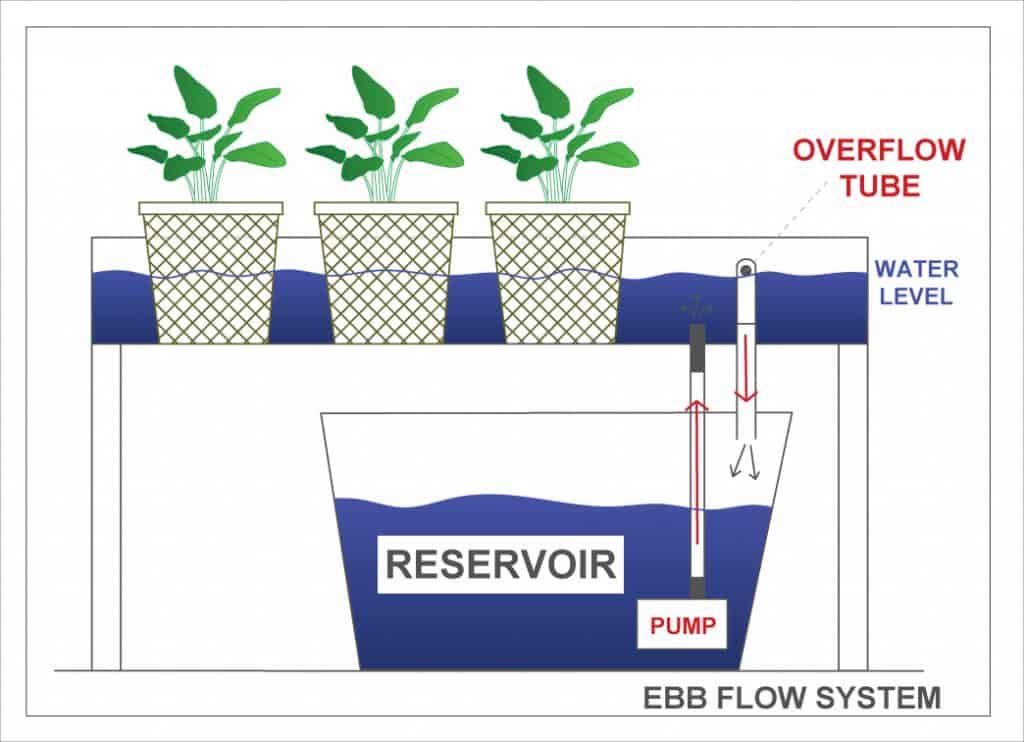
The ebb & flow hydroponic setups are quite versatile for a variety of plant sizes. You can fill the flood tray with both large and small pots.
So with this arrangement, you could put large specimen plants like tomatoes, peppers, eggplants, broccoli, or cabbage in large pots. Then you could also include several smaller pots for lettuces, herbs, greens, etc.
Simple and basic yet highly effective.
2. Top drip system (with BATO® buckets)

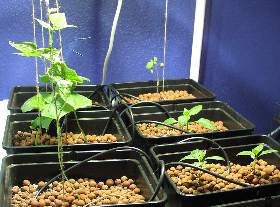
Top drip Dutch Bato buckets are most effective for the larger crops as listed above. However, you can put multiple smaller plants into one bucket, like four heads of romaine lettuce. Once these are set up, they are easy to use and quite prolific.
This is the most widely used hydroponic setup for commercial greenhouses.
3. Deep water culture (lettuce raft)
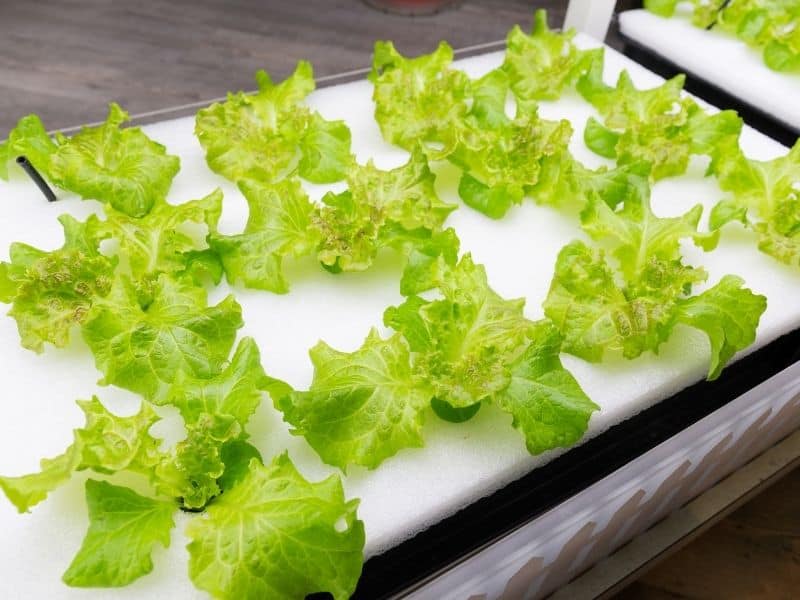
The lettuce raft would make a great hydroponic science project for a child. Take an old 5 or 10-gallon aquarium and float a raft in it. The root system is visible and makes for a great display.
The lettuce raft is one of our favorites. The operation couldn’t be simpler: you float a raft on a sea of nutrient solution. It’s so much fun to watch lettuces drop down their roots and take off!
This drip water culture (lettuce raft) is also a good choice if you have children in the home and want them to learn about hydro. It’s easy for them to see how the roots expand and dangle in the grow juice.
Good clean fun!
4. Wick system (with AUTOPOTS®)
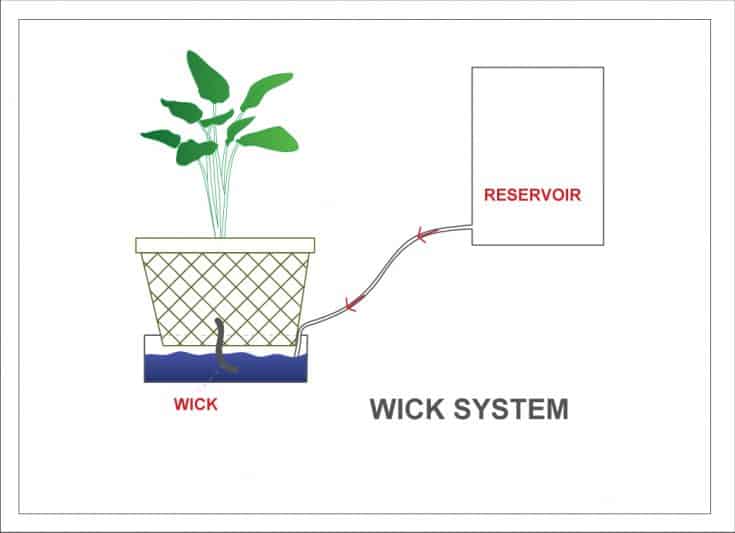
Autopots would be a good choice for specimen houseplants or perennial fruits like a miniature lemon tree. They are quite expensive but once put in place, provide a good permanent base for specimen plants. Also, a great choice if you travel a lot, as they are self-watering by gravity and will not
stop if the power goes off.
The lazy gardeners’ best bet.
Bonus hydroponic systems setups
- hydroponic herb garden
- bucket bubbler (single pot plants)
- hydroponic grow box – plans for a closet grow box and hydro bubbler system
Not into DIY? Order a complete kit here.
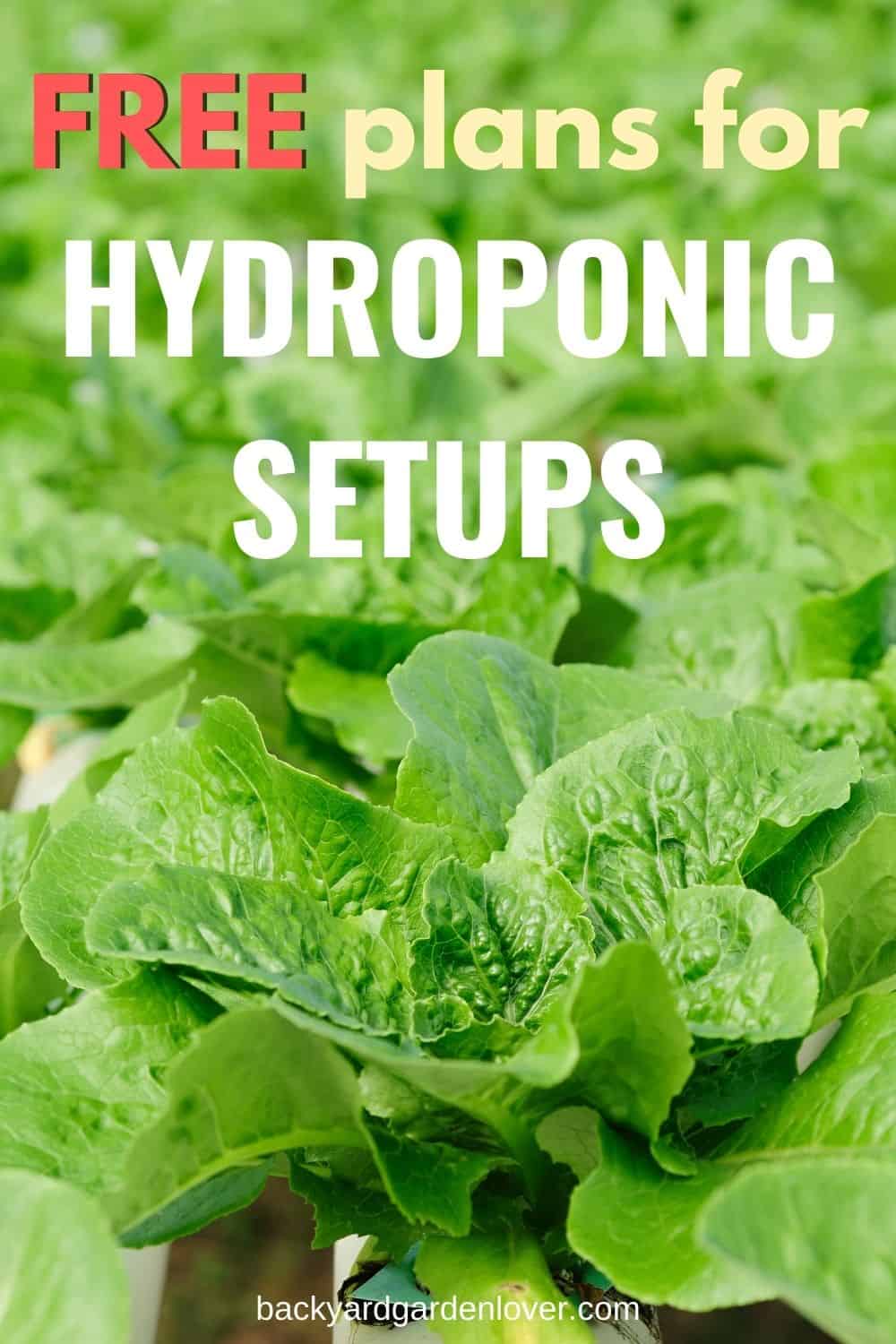

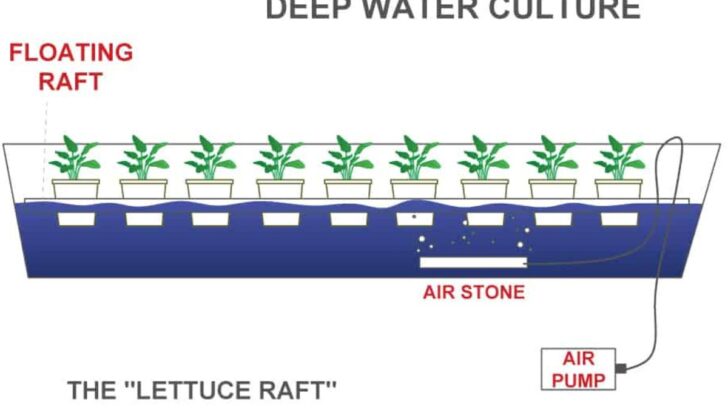

Easy Home Hydroponics Setup
Sunday 14th of February 2021
[…] hydroponics setup can’t be directly out in the rain, as it will dilute and overflow your system and get the […]
Hydroponics Advantages And Disadvantages
Monday 18th of January 2021
[…] Homemade systems – “mini-farms” from our diagrams, great beginner units (cheap and do-able) […]